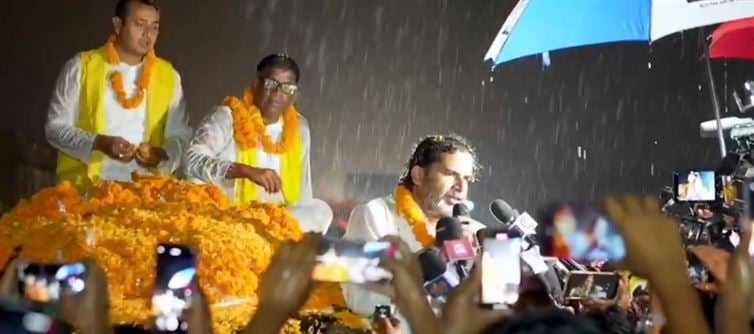
The prashant kishor Dilemma: When a State Isn’t Ready for Its Own Revolution
prashant kishor — the man who made chief ministers, rewrote political warfare, and forced a dormant state to talk about real issues again — walked into the bihar elections with a mission. Not arrogance. Not entitlement. A mission.
Yet the man who put Bihar on a different frequency couldn’t win even one seat.
Why? The answer is uncomfortable, layered, and brutally revealing about the psyche of a state trapped between its dreams and its habits.
1. The Man Who Forced bihar to Look in the Mirror
prashant kishor did what many political veterans didn’t dare:
He dragged public discourse away from caste arithmetic
He called out corruption, dynastic politics, and vote-bank manipulation
He dared to bring educated, clean candidates into the system
He spoke about development, dignity, and a future not defined by backwardness
For the first time in years, a leader wasn’t begging for votes based on community, caste, or fear.
He was asking for trust based on ideas.
But Bihar’s electoral reality is harsher than its aspirations.
2. bihar Wants Change… Until It’s Time to Vote for It
On social media, the anger against old political families was loud.
Among youth, PK was a symbol of possibility.
Among the educated, he was hope.
But elections are decided not by who trends, but by who turns up.
The truth?
Bihar still votes on survival, not vision. On habits, not hope.
And habits are harder to break than systems.
3. Why PK Winning a Few Seats Might Have Backfired
This is the part people don’t want to say out loud:
A few seats for PK wouldn’t have changed Bihar.
But they could have changed the outcome of the entire election.
Fragmented votes would have:
Reduced NDA’s numbers
Strengthened dynastic parties
Risked the return of what many still fear as jungle raj
Reignited caste-based mobilisation
people didn’t want that repeat.
People weren’t ready for that gamble.
So PK’s candidates became collateral damage in a bigger war — stability versus experimentation.
4. Bihar’s Political Chains: The Patterns We Pretend We Hate
Everyone claims they want bihar to rise.
Everyone claims they want corruption to end.
Everyone claims they want a new era.
Yet when someone tried:
No seat.
No chance.
No space.
bihar is still trapped in a loop of:
Caste first, candidate later
Fear first, future later
Patterns first, progress later
PK wasn’t defeated by parties.
He was defeated by conditioning.
5. The Hard Truth: Reformers Don’t Lose—Societies Lose Them
This election wasn’t a rejection of prashant Kishor.
It was a rejection of what he represented.
New politics.
Accountability.
Issue-based campaigns.
Transparency.
Bold, structured development.
bihar wasn’t fully ready.
Not yet.
Not collectively.
And the cost of that unreadiness might echo long after the campaign tents are taken down.
Conclusion: PK Lost the election, But bihar Lost an Era
Maybe bihar will evolve.
Maybe PK will fight again.
Maybe change will come — one election, one generation at a time.
But for now, the verdict is clear:
Bihar spoke about change but didn’t vote for it.
And in that contradiction lies the story of a state struggling with its own identity.
prashant kishor didn’t lose because he was wrong.
He lost because he was early.
Too early for a state still learning how to step out of its past.




 click and follow Indiaherald WhatsApp channel
click and follow Indiaherald WhatsApp channel